- By Corrie Pikul
 "Our findings dispel the myth that mindfulness-based intervention outcomes are exclusively the result of mindfulness meditation practice, and suggest that social common factors may account for much of the effects of these interventions," researchers write in a new study.
"Our findings dispel the myth that mindfulness-based intervention outcomes are exclusively the result of mindfulness meditation practice, and suggest that social common factors may account for much of the effects of these interventions," researchers write in a new study.
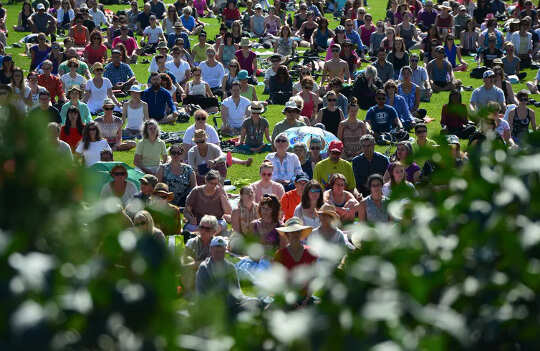
These times of uncertainty, anxiety and overwhelming information, mean that many of us are seeking to find a sense of calmness. A mindfulness practice — the simple act of pausing, taking a breath and becoming aware of our mind, body and heart — may offer some respite as well as a way to support one’s desire for action.

Sense ability is the skill to observe your thoughts, your feelings, and your behavior. It also makes you aware of others and provides real-time feedback as to how your feelings and behavior affect others -- inhibiting or inviting closeness, empathy, tolerance, emotional intimacy, interconnectedness, and oneness.

These are the instructions for the meditative practice, The Gate of Forgiveness, from The Alchemy of Stones, Chapter 13: Forgiveness.

In the 17th century, the French philosopher René Descartes came up with the "explanation for it all": I think, therefore I am. This statement was the source of debates in philosophy classes. It was the existential "which came first" dilemma: the chicken or the egg?

Realizing that we create everything we experience - no matter how positive or negative it may seem - is the first step in spiritual mastery. But it's only the beginning. Trying to satisfy the endless needs of the ego leads to complete disillusionment. I'm a strong proponent of viewing acts of service as a...
- By James Allen

Spiritual progress is painfully slow and uncertain until the eyes of discernment are opened. Without discernment, we too often mistake the inward promptings of our small self for the voice of the higher spirit of Truth.

The message of "Living in the Moment" was given greater depth when shortly before the writing of this book was completed; my own journey brought me to a fork in the road. A beautiful voice, one that I was familiar with, spoke to me. "Are you ready to come home?" It said, as clear as if someone were sitting beside me...
- By Alan Watts
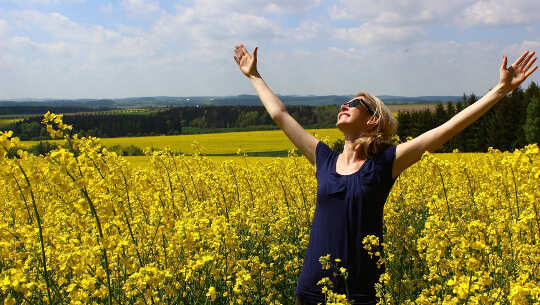
What we call meditation or contemplation -- for want of a better word -- is really supposed to be fun. I have some difficulty in conveying this idea because most people take anything to do with religion seriously -- and you must understand that I am not a serious person. I may be sincere, but never serious...

When we start to do something meaningful, excuses come up that prevent us from giving it our whole heart and attention. We can fritter away days and nights on mindless diversions, but when it comes time to meditate, suddenly all sorts of obligations, false expectations, or doubts arise...
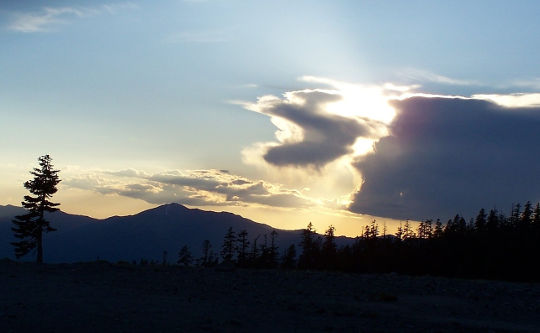
There are many important things we do here in this life, like loving and being loved by others, or finding meaningful ways to help people and the planet. But the most important thing is our spiritual connection, our relationship to our Source, our higher power, divine love, the life-force of the universe.
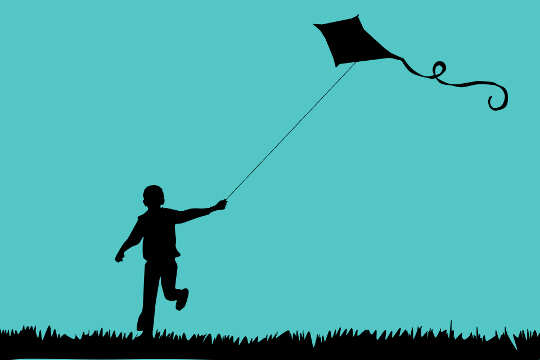
The instant we release self-judgment we are incapable of judging anyone else. We can only judge ourselves if we have not accepted ourselves unconditionally. Every experience is an equally valid expression of life and as such we cannot judge it. True, justice is the allowance of all that is.

I argue that the lesson at the heart of the movie is that because we can never count on tomorrow, life must be lived fully in the present, not just for oneself, but also for others. Ultimately, “Groundhog Day” gives us a lesson in mindfulness.

Twelve beliefs and practices for you to cultivate as you develop your abilities to manifest miracles in your life. I use the terms spiritual and non-spiritual in the sense that a spiritual being has a conscious awareness of both the physical and the invisible dimension, while the non-spiritual being is only aware of the physical domain.

It is said that when the student is ready, the teacher may physically appear and guide them in their transformation until the time when the teacher is seen everywhere. As a result of working with a Sufi teacher, enhanced perceptions and awareness bring about deep understanding, inner contentment, healing and...
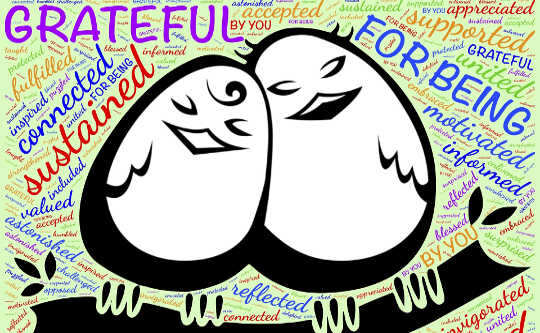
“God” is a loaded word. Can we use it without stirring controversy? I’ve turned it into an acronym: G.O.D. This seems to help.

A book of spells claiming that: “You may fascinate a woman by giving her a piece of cheese” and, while proffering a lump of cheddar may seem like an unusual way of attracting a possible mate, Paulsen’s book draws on a long history of magic. It’s a history that has quite a lot of cheese in it.

The seven directions and the seven chakras reveal seven paths to God. Although we will discuss these paths in a sequence that may seem linear, one path is no more "advanced" than another. They are simply different expressions, distinct rays of energy that each of us embody.

We’re constantly filling our ears with noise, TV and radio news, podcasts, and, of course, the multitude of sounds that we create nonstop in our own heads. Think about it: How many moments each day do you spend in total silence? The answer is probably very few.

The cognitive study of religion has recently reached a new, unknown land: the minds of unbelievers. Do atheists think differently from religious people?

I want to invite you to breathe in and breathe out, and as you breathe in and breathe out, become aware of your heart as a portal. This multidimensional door has pathways that lead to infinite places, which lead to infinite sacred sites, which lead to infinite realms of consciousness.
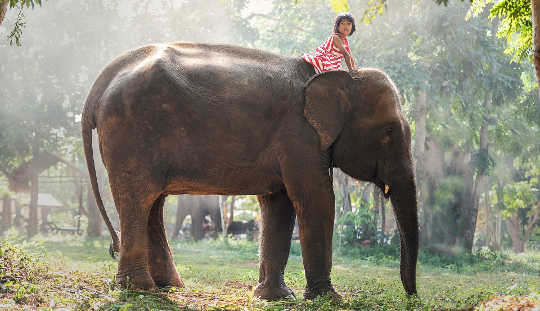
I have believed all my life that there is a necessary interaction that occurs between a person and the Divine. This interaction does not come only to great spiritual masters, it comes also to us: ordinary people in our ordinary lives...

Many people in the West interpret Buddhism as a path of meditation leading to enlightenment. What many may not know is that this interpretation differs vastly from its practice in East Asia.


















